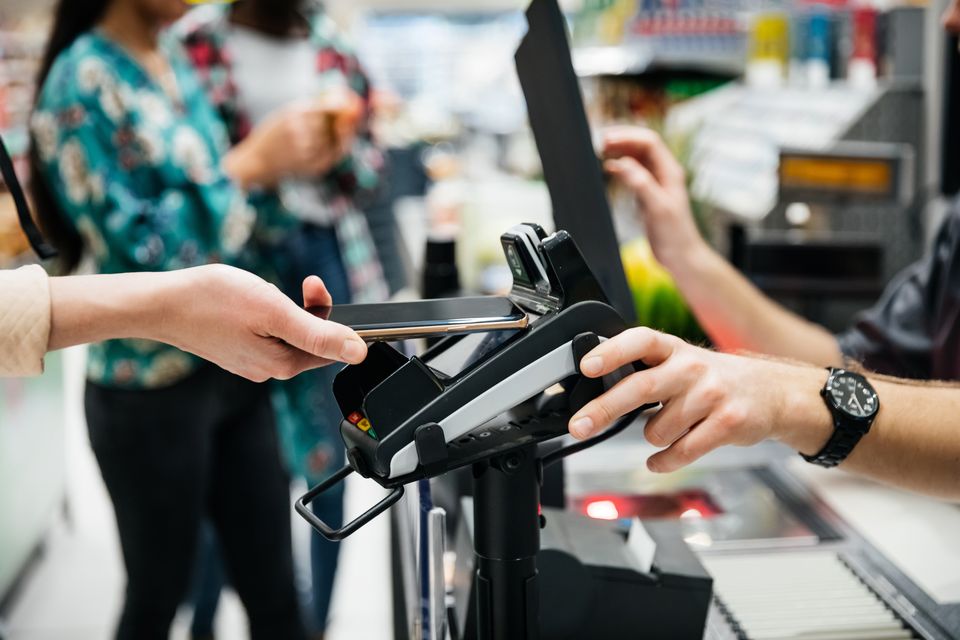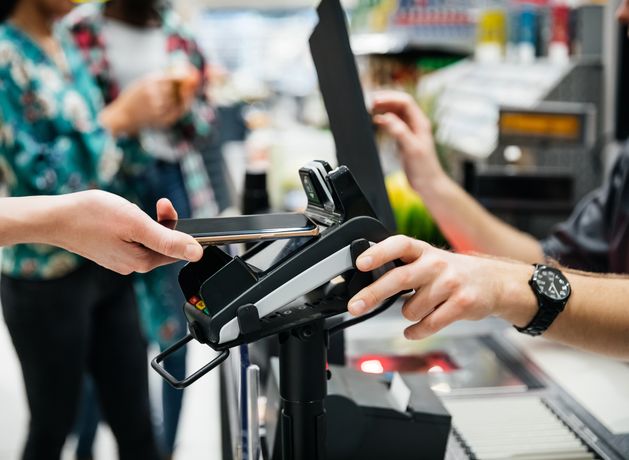Cash use is falling fast, according to a new report from the Banking and Payments Federation Ireland (BPFI).
Almost 60pc of contactless payments in shops, restaurants and other retail outlets were made using mobile wallets rather than cards in first half of this year.
This is a rise of almost 20pc on the same period last year, according to the ‘BPFI Payments Monitor’.
Despite the enthusiasm for using digital payments, research conducted by the representative group for banks found that one in four consumers do not plan to use the digital euro planned by the European Central Bank (ECB).
The banks said this highlighted the need for a raising of consumer awareness of the potential benefits of the digital euro.
A digital euro is a digital form of central bank money backed by the ECB that would act as an electronic equivalent to cash and is free for basic use.
BPFI said there was uncertainty as to how a digital euro would work.

More consumers are using smartphones to make purchases. Photo: Getty Images
Today’s News in 90 Seconds – September 19th
The scepticism about the digital euro is despite a huge take-up of digital payments.
More than 1.6 billion contactless payments were made in the year to June, valued at €28.3bn.
Almost 454 million mobile wallet payments were made in this country on Irish cards in the first half of this year, up 19.7pc on the same period last year.
Contactless payments, using a mobile phone or a debit or credit card, accounted for 88pc of all point-of-sale card payments in the first half of the year.
Banks said more than half of all contactless payments were now made using mobile wallets such as Apple Pay or Google Pay, rather than cards.
The use of smartphones and watches are growing in popularity and are the preferred payment device over physical cards
Gillian Byrne, head of payments at the banking body, said contactless payments were very popular with Irish consumers. They now account for almost nine out of 10 point-of-sale (POS) card payments made in shops, restaurants and other retail outlets in Ireland in the first half of this year.
“The use of smartphones and watches are growing in popularity and are the preferred payment device over physical cards for many consumers,” she said. “Some 58.2pc of contactless payments were made using mobile wallets rather than cards in the first half of 2025, up from 52pc in the same period of 2024.”
Ms Byrne said Dublin had the highest number of contactless and mobile wallet payments per head and the popularity of contactless payments meant cash usage had fallen.
Less than half of POS payments in Ireland last year were made with cash, according to recent ECB survey data, down from about 54pc two years earlier.
Ms Byrne said, however, cash remained of vital importance to many people.
A recent consumer survey commissioned by BPFI shows that just 7pc of consumers say they don’t use cash.
Most people use it for small payments, with a majority holding less than €50 cash on hand.
